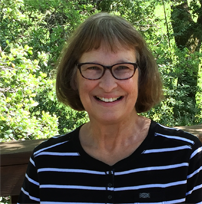 How Public Charter Schools Can Partner with Your Kids’ Schools
How Public Charter Schools Can Partner with Your Kids’ Schools
Public charter schools first originated in the 1990s throughout the United States to meet the needs of underperforming students. These first charter schools were either:
- Modified from existing public schools that were struggling to meet the needs of diverse students
- Created independently through approved charter petitions from school districts, county offices of education, or the state
Current Challenges
In the last five years, public charter schools have challenged traditional school district schools in maintaining adequate services for all. Examples include:
- Many charter schools have inadequate school buildings due to rigorous facility school district use and policies.
- Traditional public schools have been challenged with declining enrollments that have jeopardized the service delivery for all students.
- Private industry has tried to partner effectively with charter schools with bittersweet success.
Let’s Talk About Success
When considering these difficulties, how can public charter schools collectively support all of our community’s students? Yvette King-Berg, Executive Director of Youth Policy Institute’s Charter Schools (YPI), says the following are key outcomes at YPI schools:
- Culturally diverse students succeed because the parents actively become partners in their children’s learning.
- Parents are trained to help their children with their homework and guide them in making appropriate learning decisions for future academic growth.
- Teachers embrace culturally relevant curriculum to meet the needs of their students.
- The teachers connect their students’ cultural backgrounds and experiences in their daily lessons.
- The school’s leaders use many of the community’s strengths and resources to ensure that students have access to all that they need to succeed at school and to achieve their college career goals.
May your child’s academic experiences ensure success throughout the school year!
Mary Ann
Copyright © 2019 by GenParenting

Mary Ann Burke, Ed.D., Digital Education Expert, is a substitute distance learning teacher for Oak Grove School District in San Jose, California and the author of STUDENT-ENGAGED ASSESSMENT: Strategies to Empower All Learners (Rowman & Littlefield: 2020). Dr. Burke creates digital language arts and substitute teaching K – 12 activities for teachers and parents. She is the Cofounder of the Genparenting.com blog. Burke is the former Director II of Categorical & Special Projects for the Santa Clara County Office of Education that supports 31 school districts serving 272,321 students in Santa Clara County. She is also a previous Director – State & Federal Compliance for Oakland Unified School District, the former Director – Grantwriter for the Compton Unified School District, and was the initial VISTA Director for the Community Partnership Coalition in southern California. Much of her work focuses on creating innovative digital trainings and partnership programs for teachers and families to support students’ learning. These programs were featured as a best practice at a National Title I Conference, California’s Title I Conferences, AERA Conferences, an ASCD Conference, the NASSP Conference, and statewide educator conferences.

